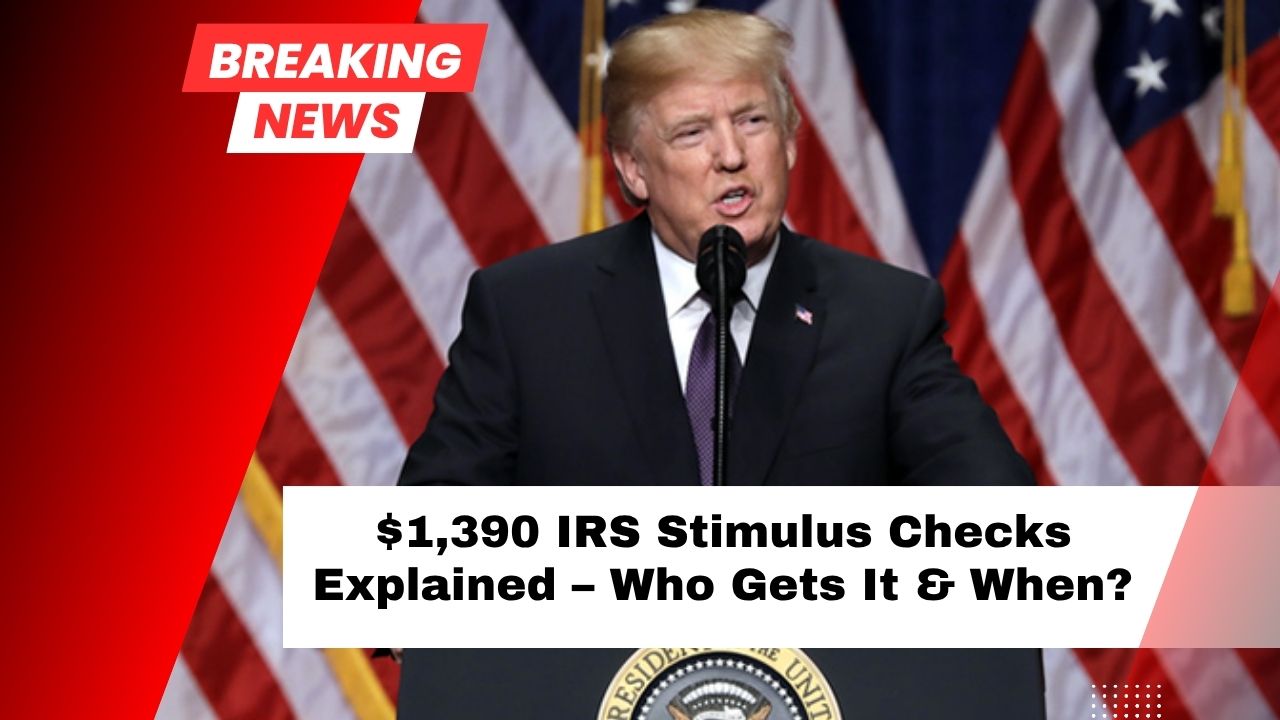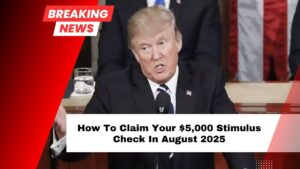With inflation continuing to squeeze household budgets, the Internal Revenue Service (IRS) is preparing to distribute $1,390 stimulus checks to millions of eligible Americans in a new round of federal economic relief.
These tax-free payments aim to support low- and middle-income households, seniors, and recipients of federal benefits.
Here’s a comprehensive breakdown of who qualifies, when you can expect your money, and how the payments will be issued.
Eligibility for the $1,390 Stimulus Payment
The IRS has outlined clear income and filing requirements for individuals to qualify for the $1,390 stimulus check. The goal is to assist those most affected by high costs of living.
You may be eligible if:
- You’re a single filer earning up to $75,000
- You’re a married couple filing jointly earning up to $150,000
- You’re a head of household earning up to $112,500
- You’re receiving federal benefits such as SSI, SSDI, or VA disability
- You’re a family with dependents (may receive additional amounts)
Importantly, these payments will not affect your existing federal aid, including Medicaid, SNAP, housing assistance, or Supplemental Security benefits.
When Will the $1,390 Stimulus Be Sent?
While the IRS has not announced an official payment date, reports suggest that the distribution is likely to begin in mid-2025. Beneficiaries should start preparing their information in advance to avoid any delays.
If you’ve previously received stimulus payments or other IRS benefits, you’re likely already in the system and will automatically be considered for this new relief check—no new application is needed.
How Will the $1,390 Stimulus Be Paid?
The IRS will use the same method of payment you’ve used for previous benefits or tax refunds. This means you’ll receive your stimulus check through one of the following:
| Payment Method | Details |
|---|---|
| Direct Deposit | Fastest method; for those with banking details on file with IRS or SSA |
| Paper Check | Mailed to your address if no banking details are available |
| Prepaid Debit Card (EIP) | Used in select cases; card mailed and can be used at ATMs and stores |
To avoid delays, it’s recommended to ensure your banking information and mailing address are up to date with the IRS or Social Security Administration.
Will This Affect My Taxes or Benefits?
No. The $1,390 IRS stimulus check is tax-free and does not need to be reported as income when filing your taxes for the year. It will not impact eligibility for other federal programs such as:
- Medicaid
- SNAP (Food Stamps)
- Housing Assistance
- SSI or SSDI benefits
- Veteran Affairs (VA) support
This is one of the key advantages of this relief plan—it’s designed to supplement income without penalizing or disqualifying beneficiaries from existing support systems.
What to Do Now
Here are steps to prepare for the upcoming stimulus:
- Check your eligibility based on income or benefit status.
- Update your bank and contact details with the IRS or SSA to avoid payment delays.
- Watch for official announcements about payment start dates.
- Keep an eye on your mail or bank account starting mid-2025.
| Category | Details |
|---|---|
| Stimulus Amount | $1,390 |
| Taxable? | No – Tax-free |
| Affects Benefits? | No impact on SNAP, Medicaid, housing, SSI, SSDI, or VA |
| Eligibility | Low/middle-income individuals, seniors, SSI/SSDI/VA recipients |
| Extra for Dependents? | Yes – Families may receive additional funds |
| Expected Start Date | Mid-2025 (estimated) |
| Payment Methods | Direct Deposit, Paper Check, EIP Debit Card |
| Application Needed? | No – Automatic based on IRS/SSA records |
The $1,390 IRS stimulus payment offers timely financial relief for millions of Americans, especially those navigating rising costs. With mid-2025 expected as the launch window, now is the time to ensure your details are up to date and that you’re ready to receive your payment through the quickest possible method.
This tax-free payment is designed to put money directly into your hands without disrupting your current benefits. Whether you receive it via direct deposit, paper check, or EIP debit card, it could make a meaningful difference in your household budget.
Stay informed, stay prepared—and if eligible, expect your $1,390 relief to arrive soon.
FAQs
Do I need to apply for the $1,390 stimulus check?
No. If you’ve previously filed taxes or are receiving federal benefits like SSI or SSDI, the IRS already has your information, and your payment will be processed automatically.
What if I changed my address or bank account recently?
You should immediately update your information with the IRS or Social Security Administration to ensure your payment is sent correctly and without delay
Will I get extra money if I have children or other dependents?
Yes. Families with eligible dependents may receive additional funds on top of the base $1,390 amount. The exact total depends on your specific household situation.




